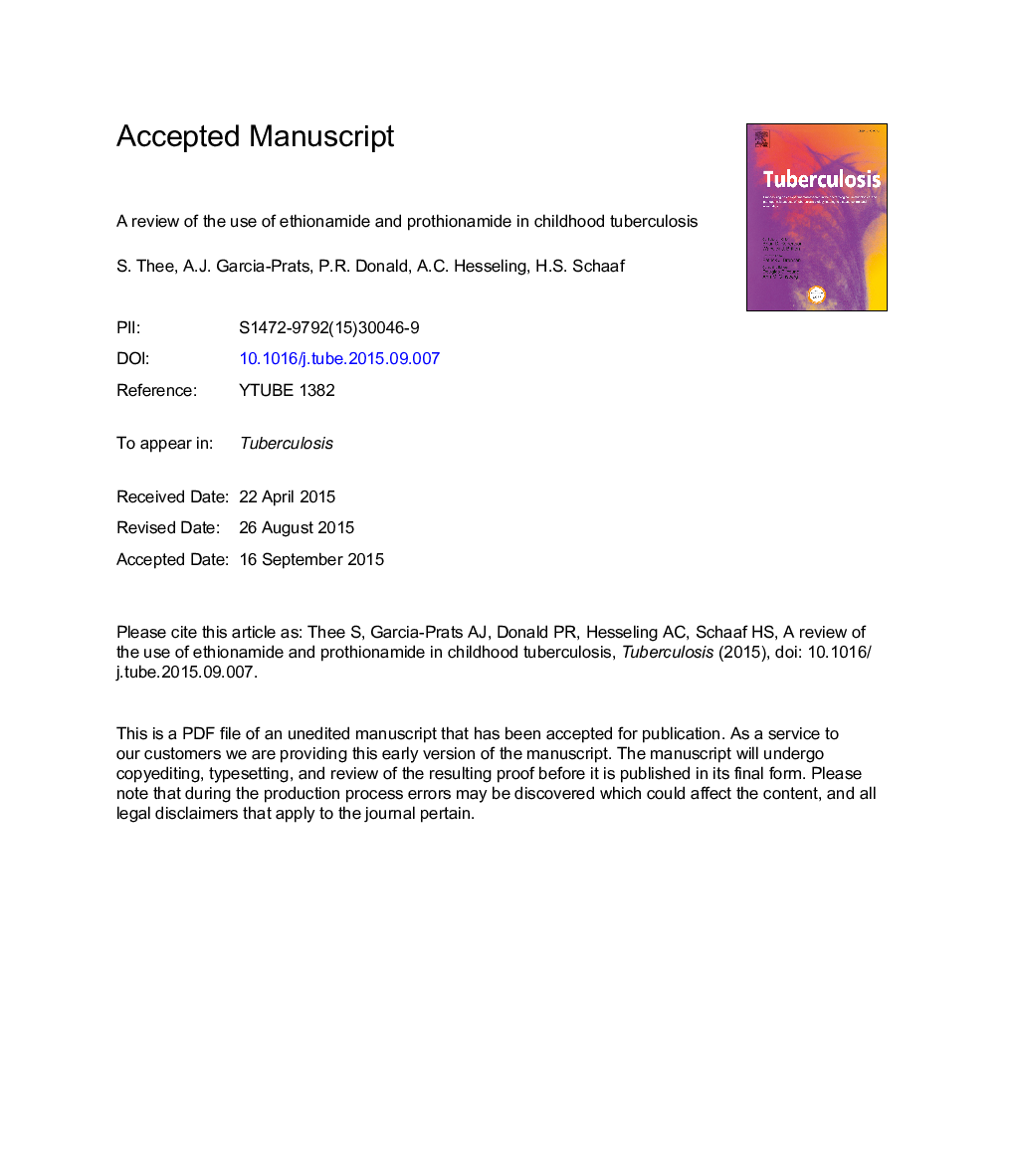| Article ID | Journal | Published Year | Pages | File Type |
|---|---|---|---|---|
| 8485306 | Tuberculosis | 2016 | 36 Pages |
Abstract
Ethionamide (ETH) and prothionamide (PTH), both thioamides, have proven efficacy in clinical studies and form important components for multidrug-resistant tuberculosis treatment regimens and for treatment of tuberculous meningitis in adults and children. ETH and PTH are pro-drugs that, following enzymatic activation by mycobacterial EthA inhibit InhA, a target shared with isoniazid (INH), and subsequently inhibit mycolic acid synthesis of Mycobacterium tuberculosis. Co-resistance to INH and ETH is conferred by mutations in the mycobacterial inhA promoter region; mutations in the ethA gene often underlie ETH and PTH monoresistance. An oral daily dose of ETH or PTH of 15-20Â mg/kg with a maximum daily dose of 1000Â mg is recommended in children to achieve adult-equivalent serum concentrations shown to be efficacious in adults, although information on optimal pharmacodynamic targets is still lacking. Gastrointestinal disturbances, and hypothyroidism during long-term therapy, are frequent adverse effects observed in adults and children, but are rarely life-threatening and seldom necessitate cessation of ETH therapy. More thorough investigation of the therapeutic effects and toxicity of ETH and PTH is needed in childhood TB while child-friendly formulations are needed to appropriately dose children.
Related Topics
Life Sciences
Immunology and Microbiology
Applied Microbiology and Biotechnology
Authors
S. Thee, A.J. Garcia-Prats, P.R. Donald, A.C. Hesseling, H.S. Schaaf,
